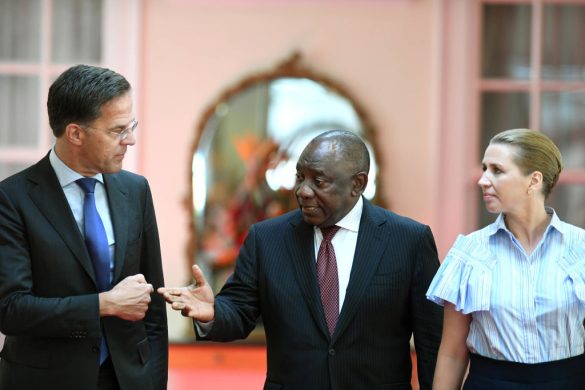Stor årlig rappport om undervisningens og folkeoplysningens stilling i verden tegner et dystert billede af forholdene i mange afrikanske lande, hvor behovet for at investere mere i ungdommen betegnes som alarmerende stort.
One third of young people in Sub-Saharan Africa fail to complete primary school and lack skills for work.
The tenth “Education for All Global Monitoring Report, Putting Education to Work”, reveals the urgent need to invest in skills for youth, writes reliefweb Wednesday.
In Sub-Saharan Africa, over 56 million people aged 15 to 24 have not even completed primary school and need alternative pathways to acquire basic skills for employment and prosperity.
This is equivalent (svarer) to one in three of the region’s youth population. Around two-thirds of the population in Africa are under 25-years-old.
In the world, an eighth of young people is unemployed; a quarter are trapped in jobs that keep them on or below the poverty line.
As the effects of the global economic crisis continue to be felt, the severe lack of youth skills is more damaging than ever.
10 millioner går ikke i skole alene i Nigeria
Despite significant progress in enrolling children in school in countries like Ethiopia, the Report shows that few are on track to meet the six Education for All goals set in 2000, and some are a long way behind.
Over 10 million are still out of school in Nigeria. Along with the Arab States, sub-Saharan Africa has the worst rate of girls to boys in school of any region in the world.
The Report looks in depth at one of the least analysed education goals on youth skills. It shows that young people need the skills taught at primary and lower secondary school to find decent jobs..
In sub-Saharan Africa, about 30 million children are still missing out on primary school and 22 million teenagers are out of secondary school, missing out on vital skills for future employment. The number of young people out of school in the region has even increased over the past year.
Går i skole i årevis, men kan ikke læse en stavelse
There is also a learning crisis: worldwide, 250 million children of primary school age cannot read or write, whether they are in school or not. In Ghana in 2008, around one-half of young women and one-third of young men could not read a sentence even though they had spent six years in school.
“We are witnessing a young generation frustrated by the chronic mismatch between skills and work. The best answer to the economic downturn and youth unemployment is to ensure that young people acquire the basic skills and relevant training they need to enter the world of work with confidence,” said Irina Bokova, the Director General of UNESCO, adding:
“Many youth, and women in particular, need to be offered alternative pathways to education, so that they gain the skills to earn a living, live in dignity and contribute to their communities and societies.”
Læs videre på
http://reliefweb.int/report/world/one-third-young-people-sub-saharan-africa-fail-complete-primary-school-and-lack-skills
Begynd fra: “In richer countries, a lack of investment in young people’s skills has contributed….”
Her kan man også downloade rapporten i sin helhed.














